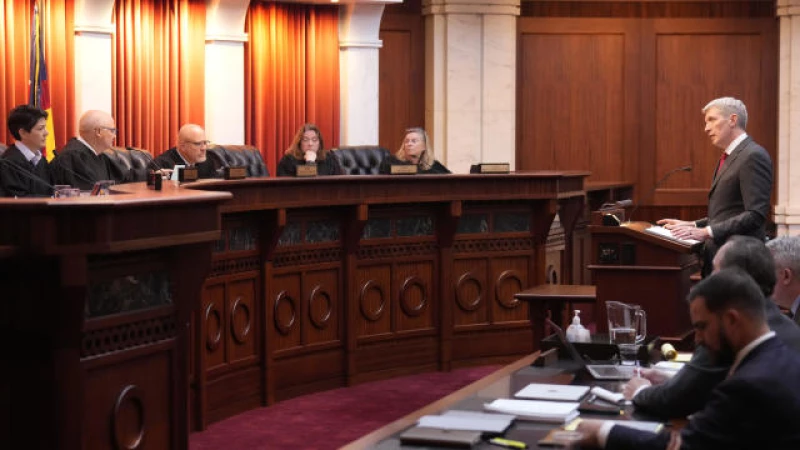Colorado Supreme Court Disqualifies Former President Donald Trump from Holding Office Again
Washington — In a stunning decision that could have major ramifications for the 2024 presidential election, the Colorado Supreme Court on Tuesday ruled that former President Donald Trump is disqualified from holding office again and ordered the secretary of state to remove his name from the state's primary ballot.
The court paused its decision until Jan. 4, one day before the deadline for certifying the candidates for the state's March 5 primary, and said the pause will remain in place if Trump asks the U.S. Supreme Court to review the decision by then. Trump's campaign has said he will do just that, meaning his name will likely remain on the state's March 5 primary ballot after all.
What to know about the Colorado Supreme Court's Trump ruling, and what happens next
Still, the decision by the Colorado Supreme Court's 4-3 majority tees up a high-stakes showdown in the U.S. Supreme Court over the constitutional provision at the center of the case, one that could threaten Trump's eligibility for the presidency if the high court rules against him. The Colorado court determined that Section 3 of the 14th Amendment, known as the insurrection clause, bars Trump from holding federal office due to his actions in connection with the Jan. 6, 2021, attack on the Capitol.
"We conclude that because President Trump is disqualified from holding the office of President under Section Three, it would be a wrongful act under the Election Code for the Secretary to list President Trump as a candidate on the presidential primary ballot," the court's majority wrote.
The Colorado Supreme Court's opinion in the Trump case
In their 133-page opinion, the four justices in the majority acknowledged that "we travel in uncharted territory, and that this case presents several issues of first impression." Justices Richard Gabriel, Melissa Hart, Monica Márquez and William Hood formed the majority.
The justices rejected claims from Trump's lawyers that the breach of the Capitol by his supporters on Jan. 6 was not an insurrection and instead concluded that the record in the case "amply established that the events of January 6 constituted a concerted and public use of force or threat of force by a group of people to hinder or prevent the U.S. government from taking the actions necessary to accomplish the peaceful transfer of power in this country."
Colorado Supreme Court's Ruling on Trump's Case
The majority found that Trump "did not merely incite the insurrection," but "continued to support it" by continuing to urge then-Vice President Mike Pence to unilaterally toss out state Electoral College votes.
"These actions constituted overt, voluntary, and direct participation in the insurrection," the majority wrote.
Read their full majority opinion here:
The minority's dissenting opinions in the Colorado Trump case
The three justices who were in the minority — Chief Justice Brian Boatright and Justices Carlos Samour and Maria Berkenkotter — each wrote their own opinions dissenting with the ruling. They each took issue with various portions of the court's opinion, and expressed concerns about what they saw as a lack of due process for denying Trump's access to the primary ballot.
In his dissent, Boatright said that the section of Colorado's election code under which the case was brought "was not enacted to decide whether a candidate engaged in insurrection."
Samour wrote that the decision to bar Trump from the primary ballot "flies in the face of the due process doctrine." The litigation in the case, Samour continued, "fell woefully short of what due process demands."
Berkenkotter wrote that she disagreed with the majority's conclusion that the state's election code "authorizes Colorado courts to decide whether a presidential primary candidate is disqualified" under Section 3, and warned that the majority's "approach seems to have no discernible limits."







